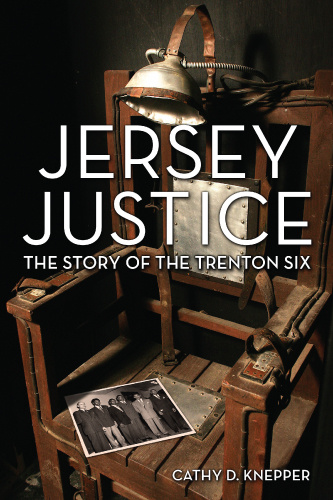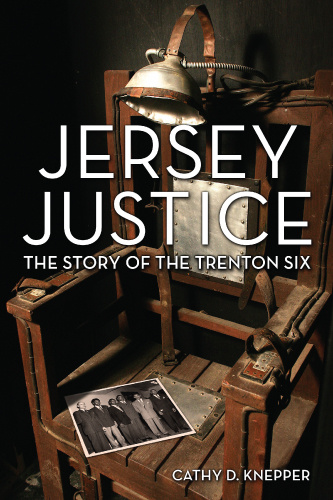Jersey Justice
The Story of the Trenton Six
The case of the Trenton Six attracted international attention in its time (1948–1952) and was once known as the “northern Scottsboro Boys case.” Yet, there is no memory of it. The shame of racism evident in the case has been nearly erased from the public record. Now, historian Cathy D. Knepper takes us back to the courtroom to make us aware of this shocking chapter in American history.
Jersey Justice: The Story of the Trenton Six begins in 1948 when William Horner, an elderly junk dealer, was murdered in his downtown Trenton shop. Over a two-week period, six local African American men were arrested and charged with collectively killing Horner. Violating every rule in the book, the Trenton police held the six men in incommunicado detention, without warrants, and threatened them until they confessed. At the end of the trial the all-white jury sentenced the six men to die in the electric chair.
That might have been the end of the story were it not for the tireless efforts of Bessie Mitchell, the sister of one of the accused men. Undaunted by the refusal of the NAACP and the ACLU to help appeal the conviction of the Trenton Six, Mitchell enlisted the aid of the Civil Rights Congress, ultimately taking the case as far as the New Jersey Supreme Court. Along the way, the Trenton Six garnered the attention and involvement of many prominent activists, politicians, and artists, including Paul Robeson, Thurgood Marshall, Eleanor Roosevelt, Pete Seeger, Arthur Miller, and Albert Einstein. Jersey Justice brings to light a shameful moment in our nation’s history, but it also tells the story of a personal battle for social justice that changed America.
The story of the Trenton Six parallels the ordeal of the Alabama defendants known as the 'Scottsboro Boys.' Unlike the Scottsboro case, however, the Trenton case has largely faded from public view. Knepper has performed an important service by bringing the story of the six Trenton defendants back to light. She convincingly demonstrates that in all likelihood innocent men came close to losing their lives for a crime committed by others.
In 1949 six African-American men in Trenton, New Jersey were sentenced to death by electrocution on the basis of coerced confessions and manipulated eyewitness testimony. Historian Cathy Knepper lays out the intriguing story of their struggle for exoneration. Starting virtually alone, Bessie Mitchell, sister of one of the six, garnered popular support in what became a world-wide campaign to free the men, involving the likes of Paul Robeson and Thurgood Marshall. The author clearly shows that in the United States innocent people can, and do, get sentenced to death, a problem of great concern to the present day.
Jersey Justice is an important book that brings to light a forgotten case of racial injustice while reinforcing the ubiquity of such events in American history and ultimately offering an effective critique of the death penalty. [A] riveting work.
CATHY D. KNEPPER is the author of Dear Mrs. Roosevelt: Letters to Eleanor Roosevelt Through Depression and War, and Greenbelt, Maryland: A Living Legacy of the New Deal. She specializes in twentieth-century history and culture.
Acknowledgments
1. The Crime and the Trenton Six
2. The Trial, Prosecution
3. The Trial, Defense
4. Bessie Mitchell Finds Help
5. Second Trial, Prosecution
6. Second Trial, Defense
7. Two Men Left
List of Principals
Notes
Index






